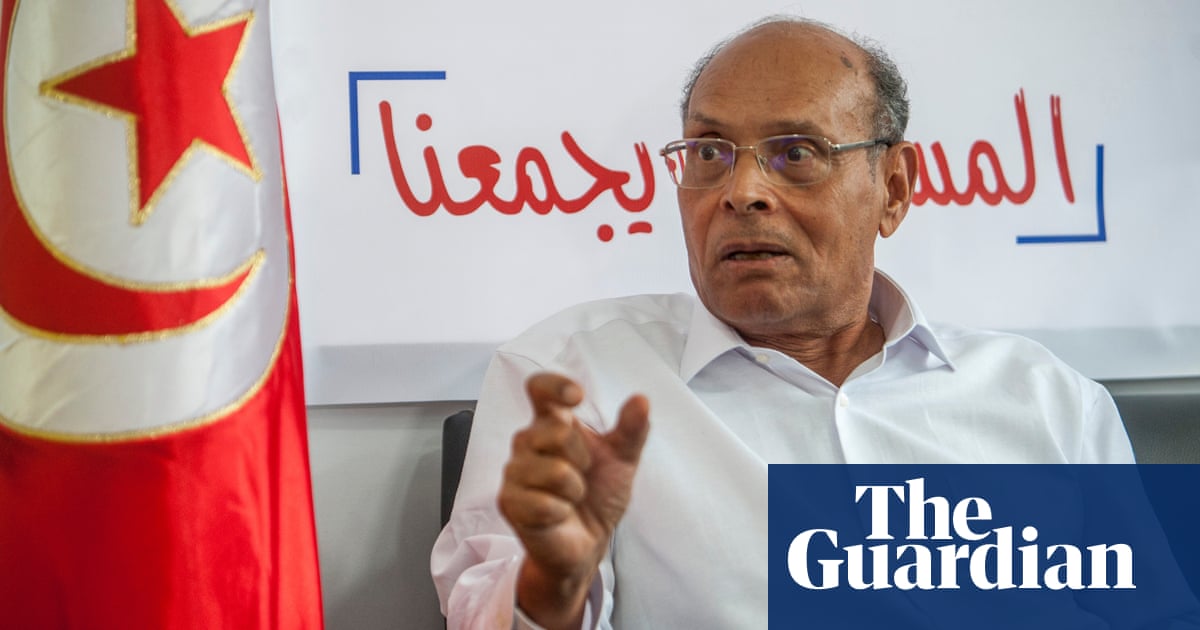
The Tunisian court has found Moncef Marzouki, the former president, guilty and sentenced him to eight years in jail in his absence. This is a part of the government’s efforts to suppress those who oppose President Kais Saied.
The ruling was issued when well-known political opponent Jaouhar Ben Mbarek was given a six-month prison sentence.
According to court spokesperson Mohamed Zitouna, authorities have accused Marzouki of breaking laws against inciting and advocating for the removal of the government. This was reported to Tunisia’s state news agency, TAP, on Friday evening.
According to Samir Ben Amor, the lawyer representing him, the punishment is a reflection of the government’s stricter stance towards dissenters.
Marzouki served as the first democratically elected president of Tunisia from 2011 to 2014, after Arab spring protests led autocratic president Zine al-Abidine Ben Ali to step down and flee the country. A longtime human rights activist, Marzouki has been a vocal critic of Saied’s moves to consolidate his own power and revise Tunisia’s post-Arab spring constitution.
Marzouki’s comments, which were not specified by the court, were accused of inciting “a plot to overthrow the government, prompting violence between individuals, and causing chaos, killings and looting on Tunisian territory.”
He consistently urges foreign nations to stop backing Tunisia while the country’s democratic progress is being undone. He also refers to Saied as a tyrant who should be ousted.
Marzouki has been convicted twice for comments made at protests and on social media, the most recent in December 2021 when he received a four-year sentence for threatening state security.
Marzouki is one of over 20 individuals in the political sphere who have faced charges or imprisonment since Saied gained control in 2021 by suspending parliament and modifying the country’s constitution. Those who oppose the president, including Marzouki, have criticized these actions as a coup, though Saied denies this allegation. His proposed changes to the constitution were approved by voters in a 2021 referendum with low turnout.
“Ben Amor questioned the validity of Marzouki’s sentence, stating that in a democratic country, it should not be acceptable to prosecute someone solely for expressing their opinion and perspective on their country’s politics.”
In the past, Saied has labeled individuals, like Marzouki, who make certain comments as “traitors to the nation” and has urged for an investigation into them. He has also targeted other individuals, such as Rached Ghannouchi, Nabil Karoui, and Abir Moussi, in his efforts to crack down on dissent. Moussi, who leads the Free Destourian party, is seen as a potential opponent in the 2024 presidential elections.
According to a statement from Ennahda spokesperson Imed Khemiri, the revolution’s progress has been hindered by (Saied’s) taking control. Basic freedoms have declined, laws have been placed on political party actions, adversaries have been pursued, and the impartiality of the legal system has been doubted.
On Saturday, Dalila Ben Mbarek, the lawyer and sister of Ben Mbarek, a prominent member of the opposition coalition National Salvation Front, stated that he was given a six-month prison sentence for his criticism of the 2022 parliamentary election. Ben Mbarek is a vocal detractor of Saied.
Last year, he was held in custody for allegedly plotting against the government. He co-founded the organization “Citizens against the coup d’état” with other politicians and human rights activists to directly oppose Saied’s administration.
He, along with other political prisoners, initiated a hunger strike in September of last year, calling for their release from incarceration.
Saied, who is 65 years old, has referred to Ben Mbarek and his colleagues as “terrorists” and has alleged that they are involved in a “plot against the security of the state”.
In the previous year, Khalifa Guesmi, a journalist from Tunisia, was imprisoned for a duration of five years due to his coverage of counter-terrorism arrests taking place in the nation.
Rewritten: The arrests have been criticized by Amnesty International and other human rights organizations. Heba Morayef, the organization’s director for North Africa, has called them “a means of silencing political opposition and instilling fear in potential opponents.”
Source: theguardian.com


















